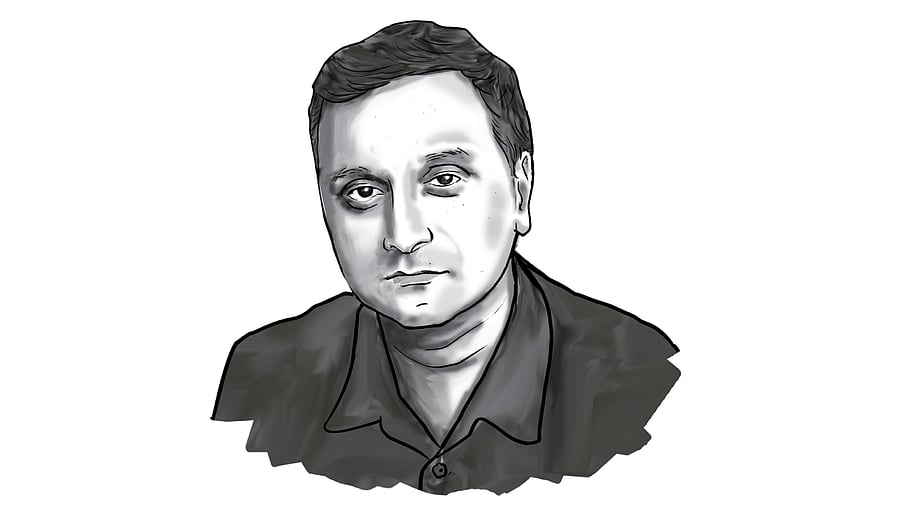
Chandan Gowda - The ISEC Professor looks for new ways of looking. X/@Chandan_Gowda73
Credit: DH Illustration
Three weeks ago, I arrived in the US to give talks at a few universities. It had been six years since I was last here. My host universities wished that I speak about my new book, Another India: Events, Memories, People. I was pleased about the lecture invitations. Opportunities to engage academic audiences in a country where I spent nearly a decade as a PhD student (at the University of Michigan, Ann Arbor) and whose films, books, comics, and popular music I have helped myself to sumptuously for long, have always felt welcome. And the occasions to catch up with friends also matter.
Besides the questions from surprise vantage points in the post-talk discussions, I look forward to the visits to bookstores on US campuses. Radio Benjamin, a book of radio broadcasts done by Walter Benjamin, the famous German literary critic, in the late 1920s and early 1930s, was the most delightful find this time. It gathers the English translations of the surviving transcripts of his German broadcasts done for Radio Berlin and Radio Frankfurt, the bulk of which were made for children and which touch on a heterogenous range of subjects: the Gypsies, witch trials, true dog stories, postal stamp forgery, bootleggers. Also in it are the transcripts of his radio plays, including the tantalizingly titled, “What the Germans were Reading While Their Classical Authors were Writing.”
A visit to Walden Pond, the 62-acre water body hemmed in by the woods where Henry David Thoreau, the great American naturalist and philosopher, lived out his experiment in simple and self-reliant living over two years in the mid-nineteenth century, counts among the special moments of this trip. D Govindaraju, a forest ecologist and geneticist friend who hosted me in Boston, had taken me over here for a walk early in the morning, when the air was still cold and crisp. Holding out an air of moral courage, the forest trail along the Pond, which led to the restored site of the small cabin Thoreau had built for himself, refreshed the soul.
Student protests against the Israeli State’s horrific attacks on Gaza, which have killed over 30,000 Palestinians and wounded twice as many thus far, have gathered in strength on American campuses over the last two weeks. After the students of Columbia University started a sit-in protest – “The Gaza Solidarity Encampment” -- demanding that their university divest its investment in companies doing business with Israel, formally condemn the Israeli violence and demand an immediate ceasefire, students on a hundred other campuses in the country have also done sit-ins in solidarity with them and made similar demands of their own universities.
Reminiscent of the powerful anti-Vietnam War student protests of the 1960s, these episodes of students striving to make their universities conform to high ethical standards have tacitly called out the moral unacceptability of the US government’s support for the Israeli violence, a stance that violates the liberal political values it claims to uphold in the country. The police arrests of a few hundred student and faculty protesters at Columbia and elsewhere have reflected poorly on the heads of university administrations who really ought to have shown a proper appreciation for the freedom of expression and of non-violent dissent on campus, and for the autonomy of their institutional life over the pressures of the pro-Israel political class and donors.
There is, of course, no taking the mind off the ongoing Lok Sabha election, which is witnessing the basest forms of electioneering -- the majoritarian appeals, the Muslim-phobia, the smear campaigns, all of which are taking India’s political culture to a new low. Might the lack of a pro-democracy student movement in India, which was last seen in the country decades ago, have brought about this unhappy state of affairs?